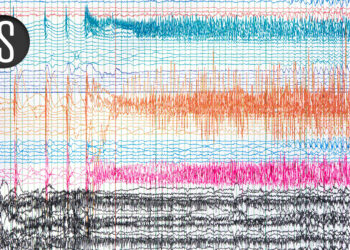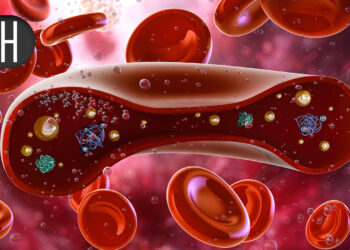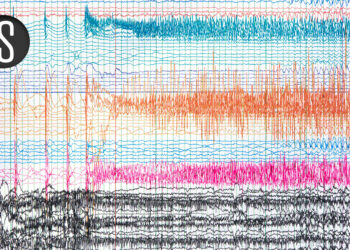
- Grammy-winning R&B artist D’Angelo has died at 51 after a private battle with pancreatic cancer.
- His death spotlights a disease that is often diagnosed late, carries poor survival rates, and is increasingly affecting younger adults.
- Experts say knowing your family history, managing lifestyle risks, and paying attention to subtle symptoms are key to early detection and prevention.
Grammy-winning R&B singer D’Angelo died on October 14 at age 51 after a private battle with pancreatic cancer.
“The shining star of our family has dimmed his light for us in this life,” his family confirmed in a public statement. “After a prolonged and courageous battle with cancer, we are heartbroken to announce that Michael D’Angelo Archer, known to his fans around the world as D’Angelo, has been called home.”
D’Angelo left an indelible mark on music with his pioneering neo-soul sound and collaborations with high-profile artists such as Jay-Z, Common, and Lauryn Hill.
He released his debut album, “Brown Sugar,” in 1995 to immediate acclaim. The record reached No. 4 on Billboard’s Top R&B Albums chart, went platinum later that year, and earned several Grammy nominations.
However, it was his sophomore release, “Voodoo,” in 2000 that propelled his music career into the stratosphere. The album debuted at No. 1 on both Billboard’s Top R&B Albums chart and the Billboard 200. He won two Grammys: Best R&B Album and Best Male R&B Vocal Performance for “Untitled (How Does It Feel).”
The music video for “Untitled (How Does It Feel)” cemented D’Angelo’s reputation as a sex symbol, albeit a reluctant one, in the cultural zeitgeist. The intimate portrayal featured the singer, famously stripped down to his waist, singing directly into the camera.
D’Angelo retreated from the spotlight after releasing Voodoo and publicly struggled with drugs and alcohol. In 2005, he was involved in a serious car crash that left him in critical condition.
More than a decade later, his third and final album, “Black Messiah” (2014), reaffirmed his enduring appeal with another No. 1 debut on the R&B chart and a Grammy for Best R&B Album.
Again, in his own enigmatic fashion, D’Angelo made only a few public appearances in the following years.
The singer was announced as a headliner for the 2025 Roots Picnic festival, but his appearance was canceled, citing an “unforeseen medical delay.”
Although details are sparse about D’Angelo’s health in the months leading up to his death, he had apparently been hospitalized for months and in hospice for two weeks, People reported.
D’Angelo’s passing is a stark reminder of the devastating effects of pancreatic cancer, one of the most deadly and least preventable forms of the disease, on a brilliant talent whose life was cut short.
“We are saddened that he can only leave dear memories with his family, but we are eternally grateful for the legacy of extraordinarily moving music he leaves behind,” his family said.
Pancreatic cancer affects the pancreas, a small organ that produces insulin and plays an essential role in digestion, among other functions. The size and location of the pancreas in the body make it more difficult to detect cancer.
Nearly 70,000 people will be diagnosed with pancreatic cancer and roughly 52,000 will die of the disease in 2025, according to the
“Pancreatic cancer is one of the deadliest cancers, with an aggressive tumor and dismal outcomes. We have limited and ineffective treatment options, and a smaller window to make a meaningful impact on the lives of people,” said Ashish Manne, MD, a medical oncologist at the Ohio State University Comprehensive Cancer Center.
Because pancreatic cancer rarely causes early symptoms, it’s often diagnosed only once the disease is advanced. Even when a patient has symptoms they are often nonspecific and may be mistaken for a number of common illnesses.
“As of yet, there is no good way to identify pancreatic cancer in the early stages, apart from listening to your body and speaking with your doctor if there are new or unusual symptoms,” said Laura Goff, MD, executive medical director for the Vanderbilt-Ingram Cancer Center Cancer Patient Care Center.
- abdominal or lower back pain
- weight loss
- jaundice (yellowing of the skin and eyes)
- loss of appetite
- dark urine
- light-colored or greasy stools
- diarrhea
- excessive hunger or thirst
- nausea
At age 51, D’Angelo’s death is an outlier, as pancreatic cancer is most common in adults in the 65 to 75 range. However, many cancers, including pancreatic cancer, have become increasingly prevalent among younger adults.
“Pancreatic cancer diagnosed before the age of 50 is considered uncommon, yet alarmingly, clinicians are beginning to see a growing number of younger patients affected by this disease,” Manne said.
Without effective screening tools for pancreatic cancer, both Manne and Goff emphasized the importance of knowing your family’s cancer history. Certain
“The first step toward lowering one’s risk of pancreatic cancer is understanding personal risk factors. Individuals should review their family history, genetic background, and medical conditions, such as diabetes, chronic pancreatitis, or obesity that may increase their susceptibility,” Manne said.
Inherited genetic risk factors are linked to as much as 10% of all pancreatic cancer cases. If someone in your family has had pancreatic cancer, you may want to consider genetic testing.
“For individuals with a family history of pancreatic cancer or those carrying high risk genetic mutations, screening may involve advanced imaging such as magnetic resonance imaging (MRI) or endoscopic ultrasound (EUS) to detect early changes in the pancreas,” he explained.
For those looking to reduce their risk, lifestyle changes may make a difference. The most effective step you can take to lower your risk of pancreatic cancer is to quit smoking, and if you don’t smoke, avoid exposure altogether.
Heavy alcohol consumption is associated with pancreatitis, a risk factor for pancreatic cancer, so limiting or abstaining from alcohol may help reduce your risk.
Managing your weight or losing weight may also help reduce your risk. People with obesity are
Despite pancreatic cancer’s grim outlook, there is still hope.
“We are doing better with treatments and newer combination chemotherapy. There are emerging targeted therapies that already are making an impact,” said Goff.
For many, however, education about this uncommon but devastating cancer is the first step.
“The more we educate ourselves and others about who is at risk and how to detect it early, the better chance we have to save lives,” said Manne.
Source link : https://www.healthline.com/health-news/dangelo-pancreatic-cancer-death-early-detection
Author :
Publish date : 2025-10-16 07:39:30
Copyright for syndicated content belongs to the linked Source.













